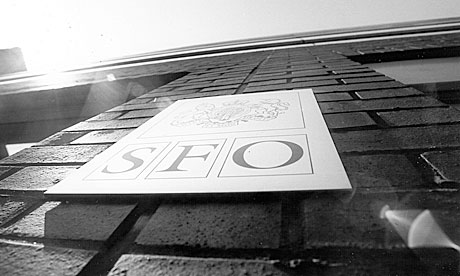In this part two I want to talk a little about physical assets. This is usually the easiest part of any asset investigation in Arizona.
All private investigators should have access to a database that allows them to perform generic searches for physical assets like property which, I will talk about first. In some cases a database search is all you need. If your subject/debtor is a professional and/or has been "hiding" these assets may be harder to find.
Worst case scenario is you have a judgment against a professional debtor. Chances are they have been in the game for a long time and know all the tricks of the trade. Without disclosing more than necessary to avoid helping these types hide even further, tracking property can be pretty simple. As discussed in a previous blog its all about finding patterns.
 Once a property or home is acquired that record never goes away. It becomes very easy to start from the beginning of that assets life and move forward with owners of record. What some of these professional debtors like to do is transfer a property to a LLC, Inc or the like. Once the paperwork is approved and completed they will then fraudulently change the name on the LLC paperwork to a
Once a property or home is acquired that record never goes away. It becomes very easy to start from the beginning of that assets life and move forward with owners of record. What some of these professional debtors like to do is transfer a property to a LLC, Inc or the like. Once the paperwork is approved and completed they will then fraudulently change the name on the LLC paperwork to a completely fictitious name for owner/manager making it almost impossible for the average private investigator to track. As mentioned before, some private investigators are lazy and some are just bad investigators. In the end its really simple, you follow the money and you start from the beginning of that assets life.
Hopefully if you read Part 1 you are asking how this ties into the awful report I received from another firm. The original report contained only one property. My initial investigation had revealed that this particular subject had at one time owned 11 different homes and properties throughout Arizona and Nevada. What had happened was our debtor knew a lawsuit was in the works and did exactly as I mentioned above. When the investigation was complete I essentially was able to show that this debtor had fraudulently transferred 9 of the 11 assets to LLC's with managers that really didn't exist. I was further able to show the paperwork taking his name off the LLC's with his signature and adding a total of 10 ghost managers. It did cost the client a large amount of money in attorney's to fight this in court but in the end the judge couldn't deny the facts that we had provided.
On a side note, some really brazen and educated debtors manipulate bank accounts this way as well. I will talk about that in another blog.
 The last thing I want to touch on is vehicles. A lot of investigators over look this for some reason. Its really simple for private investigators to get this information from the Department of Motor Vehicles. Its relatively cheap and quick.
The last thing I want to touch on is vehicles. A lot of investigators over look this for some reason. Its really simple for private investigators to get this information from the Department of Motor Vehicles. Its relatively cheap and quick.For whatever reason a lot of folks with money like their cars and a lot of the time classic cars. 99% of the time these assets are paid off making them gold mines for seizures to pay your judgment or debt off.
I know this particular section wasn't informative as the others but again I didn't want to disclose to much and educate the debtors who are on the edge of becoming professionals.
As always if you have any questions feel free to contact me anytime.
John Hopper
Director of Investigative Services
JB National Investigations, LLC
john@jbnational.com
www.jbnational.com







